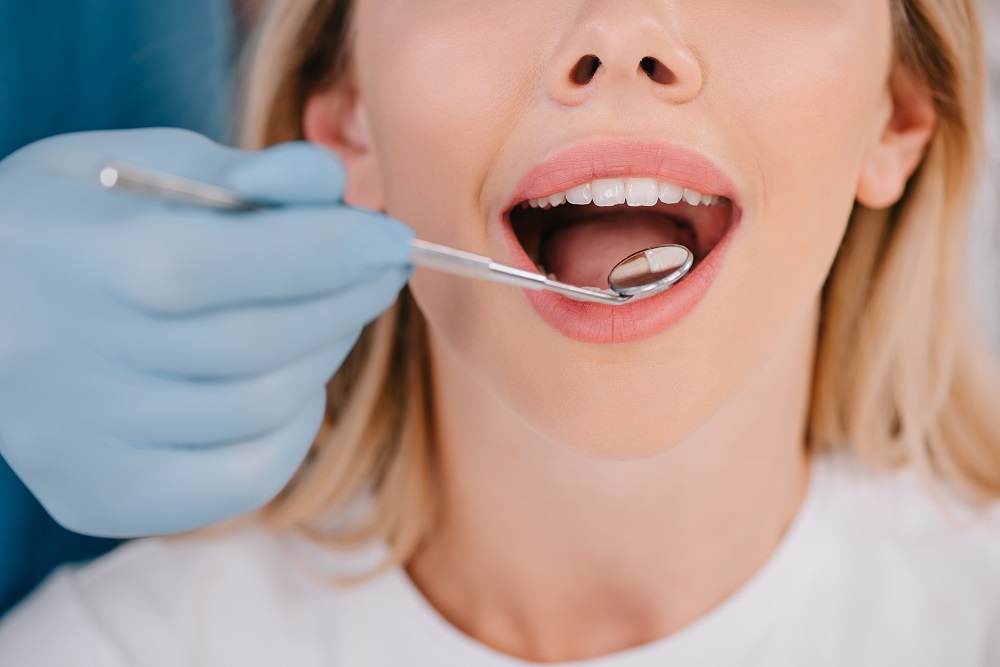“Good dental hygiene is essential for a lifetime of healthy teeth and gums.”
Taking care of your teeth matters more than you might think. If you don’t, you could end up with issues like cavities or painful gums. Surprisingly, lots of folks don’t take their oral health seriously.
In fact, around 100 million people in the United States, including places like Chandler, AZ, don’t visit the dentist each year (According to the American Dental Association.)
But here’s the good news! It’s pretty easy to avoid most dental problems. Just make sure you brush and floss properly and see your dentist regularly.
With this in mind, below, we’ll break down oral health and go over common dental issues. We’ll also give you solutions on how to keep your teeth healthy.
So, without further ado, let’s dig into it.
What is oral health?
Oral health encompasses the well-being of your teeth, gums, and entire mouth. Often, when people talk about “dental problems,” they’re referring to a variety of conditions that impact this area of health.
Such dental issues can range from:
- Cavities
- Tooth erosion
- Infections and
- Gum diseases
These conditions are not only painful and uncomfortable but can also interfere with daily activities like eating. Additionally, they often affect a person’s self-confidence and self-esteem.
Also, according to the World Health Organization reports, dental diseases are prevalent worldwide, with approximately 3.5 billion people experiencing oral disorders, primarily dental cavities.
Common Dental Problems and Solutions
Below are a few dental problems, along with their solutions, that might help you have a speedy recovery.
Tooth Cavities
Tooth cavities, also known as tooth decay, occur when a sticky film of bacteria called plaque builds up on teeth. Sugars in food turn into acids, damaging the tooth’s outer layer (enamel).
According to the Centers for Disease Control and Prevention (CDC), around 9 in 10 adults have tooth decay.
Dentists identify tooth decay through X-rays, and a thorough examination with dental tools to find soft spots in teeth. They also ask about any pain or sensitivity you might be experiencing.
Now, you can help prevent tooth decay by:
- Brushing your teeth twice daily with fluoride toothpaste and a soft brush.
- Flossing daily.
- Limiting sugary snacks and drinks.
- Using dental sealants for added protection.
Keep in mind that straight teeth are easier to clean, reducing the risk of plaque buildup and tooth decay, which in turn lowers the chances of developing cavities. Seeking guidance from certified Invisalign dentists in Dubai can help you achieve proper alignment and better oral hygiene. Properly aligned teeth not only improve your smile but also support long-term dental health by making brushing and flossing more effective.
Tooth Erosion
Tooth erosion happens when the acid in our food and drinks wears away the enamel, the hard, protective layer on our teeth. Also, if you have a dry mouth, you’re more at risk because you don’t have enough saliva to wash away the acids. That is when you might need to visit a nearby dentist.
They put a special resin on the damaged or stained teeth to protect them. They might suggest dental veneers to fill in the gaps. In some cases, options like these can support both function and aesthetics—have a look at this to explore how such treatments might be approached elsewhere. Moreover, with teeth prep for veneers in chandler az, dentists can protect your teeth from getting worse. However, it is also important to remember that once your tooth enamel is gone, it cannot be restored. So take care accordingly.
Certainly, here are the tips to prevent tooth erosion.
- Avoid highly acidic foods and beverages. Or use a straw when consuming.
- Chew sugar-free gum. It stimulates saliva to neutralize acids.
- Maintain a diet rich in calcium and nutrients.
- Visit the dentist for checkups and cleanings.
- Treat Acid Reflux or Dry Mouth.
- Wait 30 minutes after acidic foods to brush or rinse your mouth.
Cracked or Chipped Tooth
A cracked or chipped tooth can happen when you chew on hard things, grind your teeth at night, or have accidents. Signs of a chipped or cracked tooth include:
- Pain when you eat or drink hot or cold things.
- Occasional pain that comes and goes.
Dentists will check your mouth to find these cracks. Sometimes, they use a special dye to see the damage better.
Fixing a cracked or chipped tooth depends on how bad it is. They might use bonding, put a crown on the tooth, do a root canal, or take out the tooth, depending on how serious the damage is.
So, it is always recommended to see a dentist if you think you have a cracked or chipped tooth.
Summing Up
Dental problems are widespread and can have a significant impact on nutrition, self-esteem, and overall well-being. Ignoring these issues can lead to chronic problems and may even signal underlying medical conditions. Fortunately, many dental problems can be prevented through proper oral hygiene and scheduling routine dental checkups. So, don’t let these issues create trouble in your everyday life; instead, be proactive instead.
Remember, “Prevention is always better than Cure!”

